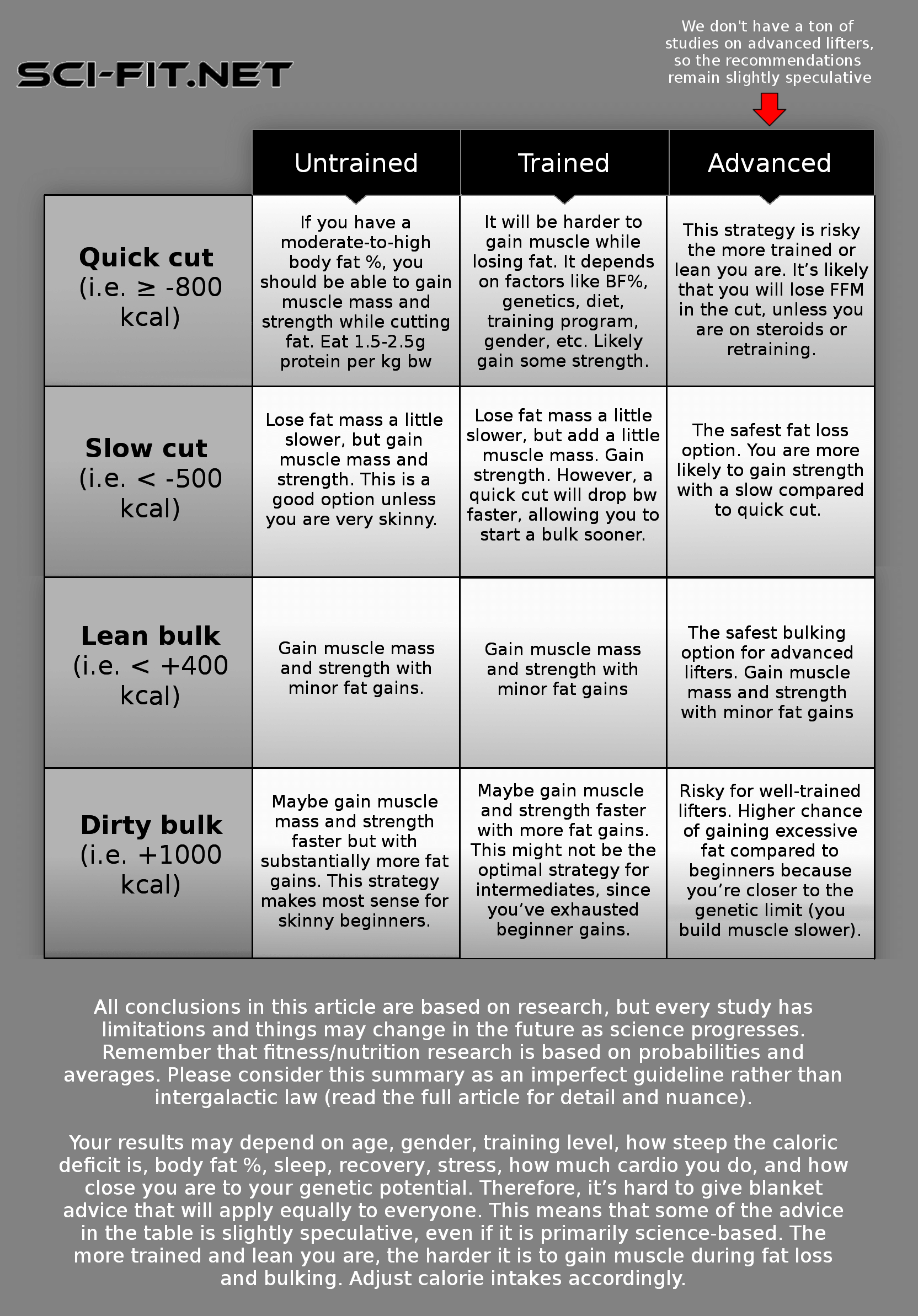I'm getting bored here. Time to start some controversy.
As per Christian Thibaudeau:
"Yes, you read that right. The "evidence-based" coaches will want to destroy me, but I have science to back me up when I say that you don't need extra calories to build muscle. In fact, a caloric surplus isn't even a main variable when it comes to building muscle. It's only indirectly involved.
A couple of years ago, Dr. Stuart Phillips and a group of capable scientists from McMaster's University recruited two groups of 20 men. Both groups were assigned a diet that gave them a 40% caloric deficit per day over 4 weeks. (All of their meals were given to them, so it was well controlled.)
One group had a daily protein intake of 1.2g/kg (0.54g per pound, so about 108 grams for a 200-pound man) and the second group received about twice as much protein, or 2.4g/kg (1.1g per pound, so about 220 grams for a 200-pound man).
All of the men lifted 4 days a week and did sprints 2 days a week. After 4 weeks, both groups lost a significant amount of fat (around 3.5kg or 7.7 pounds). The low protein group lost a small amount of muscle while the high protein group actually GAINED some muscle. (1)
Clearly, protein is the nutritional key necessary for muscle growth, and not a calorie surplus."
Reference Cited: Thomas M Longland, Sara Y Oikawa, Cameron J Mitchell, Michaela C Devries, and Stuart M Phillips. "Higher compared with lower dietary protein during an energy deficit combined with intense exercise promotes greater lean mass gain and fat mass loss: a randomized trial." American Journal of Clinical Nutrition, January 2016.
See the whole article at Testosterone Nation if interested.
As per Christian Thibaudeau:
"Yes, you read that right. The "evidence-based" coaches will want to destroy me, but I have science to back me up when I say that you don't need extra calories to build muscle. In fact, a caloric surplus isn't even a main variable when it comes to building muscle. It's only indirectly involved.
A couple of years ago, Dr. Stuart Phillips and a group of capable scientists from McMaster's University recruited two groups of 20 men. Both groups were assigned a diet that gave them a 40% caloric deficit per day over 4 weeks. (All of their meals were given to them, so it was well controlled.)
One group had a daily protein intake of 1.2g/kg (0.54g per pound, so about 108 grams for a 200-pound man) and the second group received about twice as much protein, or 2.4g/kg (1.1g per pound, so about 220 grams for a 200-pound man).
All of the men lifted 4 days a week and did sprints 2 days a week. After 4 weeks, both groups lost a significant amount of fat (around 3.5kg or 7.7 pounds). The low protein group lost a small amount of muscle while the high protein group actually GAINED some muscle. (1)
Clearly, protein is the nutritional key necessary for muscle growth, and not a calorie surplus."
Reference Cited: Thomas M Longland, Sara Y Oikawa, Cameron J Mitchell, Michaela C Devries, and Stuart M Phillips. "Higher compared with lower dietary protein during an energy deficit combined with intense exercise promotes greater lean mass gain and fat mass loss: a randomized trial." American Journal of Clinical Nutrition, January 2016.
See the whole article at Testosterone Nation if interested.

